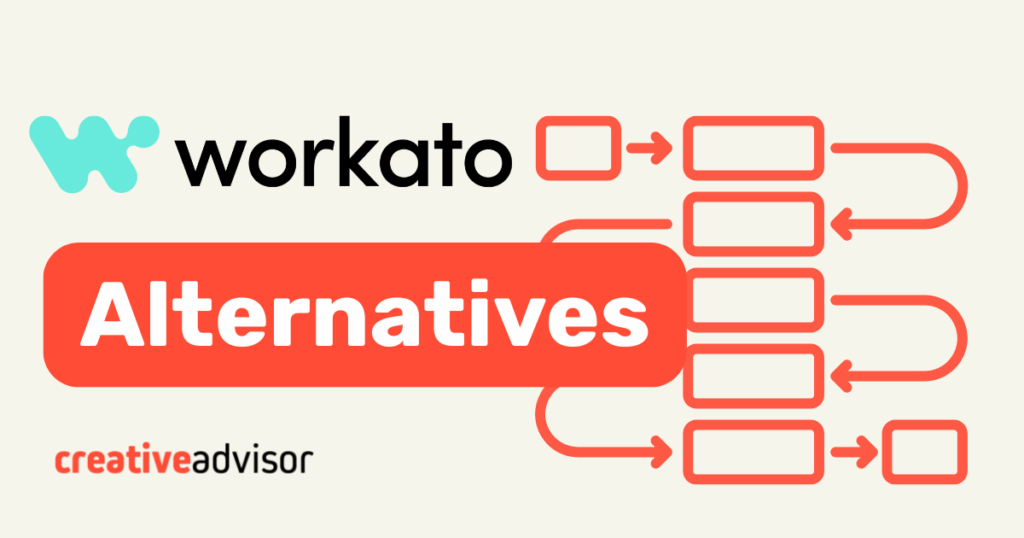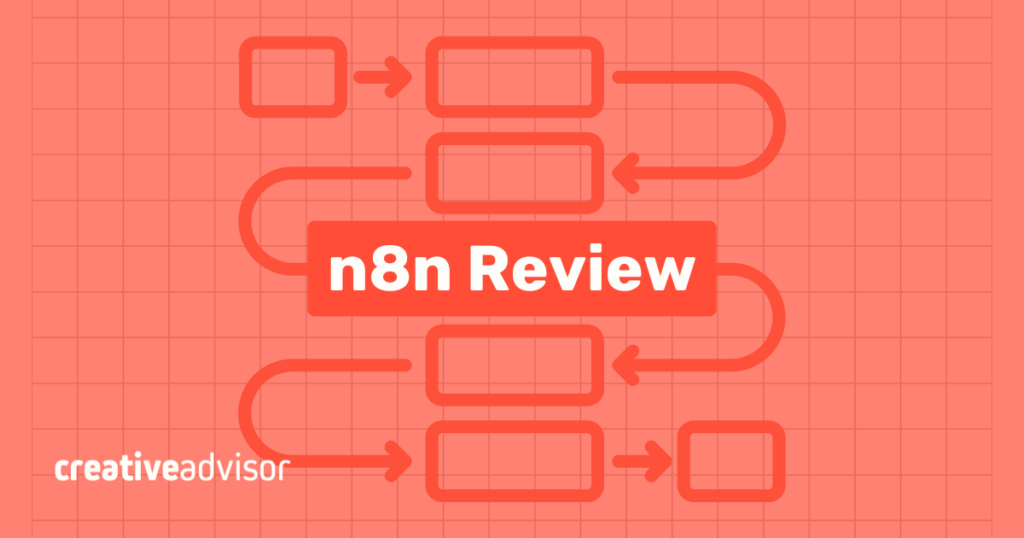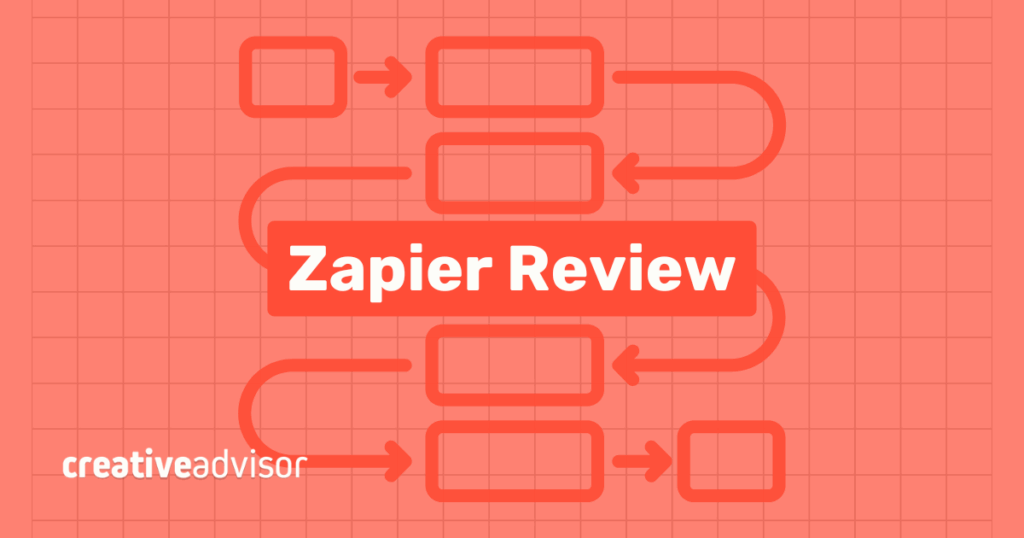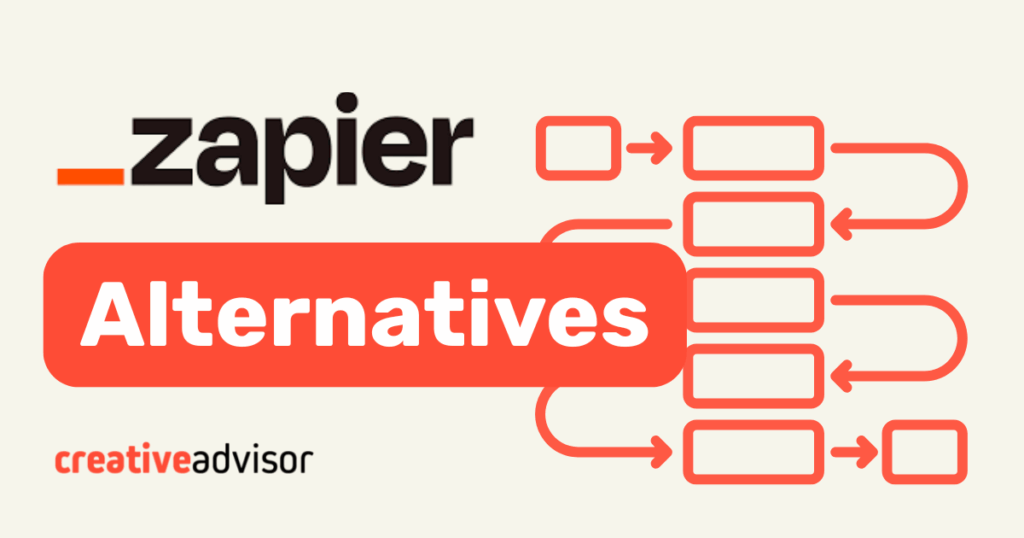Workato has built a reputation as an enterprise-grade automation platform. Large companies use it to connect CRMs, ERPs, and financial systems while keeping data secure and compliant. A global retailer, for example, might rely on Workato to sync thousands of daily orders between Shopify, NetSuite, and Salesforce with reliability at scale.
But for many teams, the story looks different. A mid-sized SaaS company may find Workato’s pricing hard to justify as workflows expand. An operations manager might struggle to get non-technical staff building automations without heavy IT support. These situations often lead businesses to search for Workato alternatives that balance power with cost and usability.
Why choose an alternative Workato?
Workato shines for enterprises that need secure, large-scale automation. Still, many businesses discover challenges as they grow. The most common reasons teams start exploring alternatives include.
- Rising costs as automation volume increases. A company might begin with a few workflows, only to see costs surge once hundreds of processes are running daily.
- Steep learning curve for business users. Marketing or HR teams often need IT help to build or maintain automations, which slows down adoption.
- Overkill for mid-sized businesses. Many organizations do not need enterprise-grade features and find the platform too advanced for their day-to-day needs.
- Flexibility concerns. Some teams want easier customization, more transparent pricing, or platforms that fit better with their existing tool stack.
These challenges push many teams to look for alternatives that combine easier setup, fairer pricing, and the right balance of usability and enterprise features.
Dive deeper: Workato Review 2025: Enterprise Automation Built for Scale
What to look for in a Workato alternative
Not every business needs the same level of automation power. The right alternative depends on your team size, technical resources, and long-term goals. When comparing options, keep these factors in mind.
- Pricing model. Look for platforms that scale fairly with usage and avoid steep jumps in cost as workflows increase.
- Ease of use. Non-technical teams should be able to set up and maintain workflows without frequent IT assistance.
- Integration depth. Check whether the platform connects smoothly with your most important tools, from CRMs and ERPs to marketing apps.
- Security and compliance. If you operate in healthcare, finance, or other regulated industries, confirm that the platform meets requirements like SOC 2, HIPAA, or GDPR.</li.
- Flexibility for technical teams. Developers may want open APIs, advanced error handling, or the ability to customize workflows beyond pre-built templates.
Evaluating these factors makes it easier to choose a platform that supports current workflows while scaling for future growth.
| Platform | Best for | Pricing Snapshot (Sept. 2025) | Library/Coverage | Complexity | Where it falls short |
|---|---|---|---|---|---|
| Workato | Enterprise automation and security | Usage-based. Enterprise editions require sales contact. | 1,200+ apps | Expert | Opaque pricing, requires technical setup, cloud-first architecture adds steps for hybrid systems. |
| Zapier | SMB teams, quick setup | Free Plan Pro$19.99/mo annual Team $69/mo annual Enterprise-requested pricing |
8,000+ apps | Beginner | Hard task caps and step limits, slower support on lower tiers, not HIPAA compliant. |
| Make | Advanced, visual, API-heavy builds | From $9/mo (10k credits). Free plan limited to 1k credits with 15-min runs. | 3,000+ apps | Intermediate | Hard credit caps, slower support on lower tiers, AI tools still in beta. |
| Relay | Small teams wanting simple, AI-powered automation. |
|
100+ apps | Beginner | Smaller app catalog, AI and step caps pause workflows mid-cycle, email-only support. |
| n8n | Developers, open-source flexibility | Self-host free Starter $20/mo annual-$24/mo Pro $50/mo annual-$60/mo |
1,200+ apps | Intermediate | Steep learning curve, DevOps upkeep when self-hosting, limited support on basic plans. |
| Lindy | AI-native, agent-based automation |
| 3,000+ apps | Beginner | Credit caps limit heavy workloads, cloud-only hosting reduces flexibility, and enterprise controls are still maturing. |
| IFTTT | Personal and lightweight automations | Free plan Pro $2.99/mo annual-$3.99/mo. Pro+ $8.99/mo annual-$12.99/mo |
2,000+ apps | Beginner | Not suited for business workflows, limited advanced features, smaller ecosystem. |
| Integrately | One-click automation setups | $19.99-$239/mo annual (2k-150k tasks). | 1,400+ apps | Beginner | Fewer advanced tools, smaller library than major competitors, limited customization. |
| Pabbly Connect | Budget-friendly automation | Free plan Standard $16/mo annual-$19/mo Pro $33/mo annual-$39/mo Ultimate $67/mo annual-$79/mo |
Wide and growing | Beginner | Fair-use limits apply on “unlimited” plans, less polished interface, smaller integration ecosystem. |
| Tray.ai | Scaling SaaS and advanced integrations | Usage-based, enterprise-packaged via sales. | Strong API connectors | Expert | No public pricing, complex for small teams, higher costs at scale. |
Our featured partners
Top Workato alternatives
Workato delivers strong enterprise automation, but many teams need simpler tools or more predictable pricing. The alternatives below offer options that balance usability, cost, and flexibility for different business needs.
Zapier – Best for SMB teams, quick setup
Compared to Workato, Zapier is much easier for small teams to adopt. Workato often needs IT support, while Zapier lets anyone create simple workflows in minutes, such as routing form submissions to a CRM, updating a spreadsheet, or sending alerts to a team chat. It gives teams a fast way to automate daily tasks without relying on technical help.
Pros
- Easy for non-technical teams to build workflows quickly.
- Connects with more than 8,000 apps across business, productivity, and marketing tools.
- Clear pricing model that helps teams plan task usage.
- Strong documentation and templates that make setup faster.
Cons
- Hard task caps can pause workflows when usage spikes.
- Support response times vary on lower-tier plans.
- Limited step and field limits for large or complex workflows.
- Not HIPAA compliant, which restricts use in healthcare settings.
Learn more: Zapier Review 2025: 8,000+ App Integrations But Premium Cost
Make – Best for advanced visual, API-heavy builds
Make appeals to teams that want strong control and transparency without the complexity of enterprise platforms like Workato. Its visual builder helps users map out workflows step by step, from updating product data to coordinating CRM or operations tasks, with room for more advanced API-driven automation.
Pros
- Visual scenario builder helps teams map and test workflows step by step.
- Connects with more than 3,000 apps and supports strong API control.
- Advanced tools like routers and iterators give flexibility for complex workflows.
- Predictable pricing for most workloads with fixed monthly credit limits.
Cons
- Credit caps can pause workflows when usage spikes.
- Learning curve can feel steep for non-technical users.
- AI tools are still in beta and may evolve.
- Slower support response times on lower tiers.
Learn more: Make Review 2025: A Flexible, Visual Platform for Smarter Automation
Relay – Best for small teams wanting simple, AI-powered automation
Relay provides a clean, guided automation experience with built-in AI steps that help streamline everyday workflows. Small teams can configure processes quickly thanks to real-time previews and clear prompts. Its limited app catalog and strict step caps make it better for focused tasks rather than high-volume automation.
Pros
- Guided visual builder with live data previews makes workflows easy to design and test.
- Built-in AI steps can classify, summarize, or generate content directly inside automations.
- Simple setup and clear interface help non-technical teams build workflows quickly.
Cons
- Cloud-only architecture may not fit strict data-residency or on-premise requirements.
- Hard monthly step caps can pause workflows during busy periods unless upgraded.
- Smaller integration library (100+ apps) than larger automation platforms.
n8n – Best for developers open-source flexibility
Where Workato relies on enterprise sales and packaged plans, n8n offers an open-source alternative that teams can host themselves. Developers use it to connect niche APIs, keep sensitive data on internal servers, and customize workflows in ways that Workato usually reserves for higher-tier agreements.
Pros
- Open-source and self-hosted, giving teams full control over data and infrastructure.
- Flexible logic with conditional branches, loops, and error handling for complex workflows.
- Supports more than 1,200 integrations and connects to any API through HTTP requests.
- Allows custom code, custom nodes, and deep workflow customization.
Cons
- Steep learning curve for non-technical teams.
- Self-hosting requires server maintenance, updates, and monitoring.
- Community-driven support on lower tiers.
- Complex workflows may need detailed troubleshooting and log reviews.
Learn more: n8n Review (2025): Key features, Pricing, and Integrations
Lindy – Best for AI-native, natural-language automation
Lindy delivers an AI-first approach to automation, letting teams set up workflows by explaining tasks in everyday language. Its agents can reason through instructions, move data between tools, and coordinate work across a large integration library. It’s well suited for teams that want more adaptive and context-aware automations.
Pros
- Natural-language automation makes setup quick and intuitive.
- AI agents can handle contextual decisions, routing, and data interpretation.
- Connects with 3,000+ business apps across productivity, CRM, and project tools.
Cons
- Credit limits restrict scale and cost predictability.
- No self-hosting option for teams with strict data-residency requirements.
- Enterprise controls like role management and permissions are still developing.
IFTTT – Best for personal and lightweight automations
While Workato supports complex enterprise workflows, IFTTT focuses on simple, personal automations. It works well for basic tasks and smart devices but is not designed for business-scale processes.
Pros
- Very easy for beginners.
- Low-cost plans under $5/month.
- Strong coverage of consumer and smart home apps.
Cons
- Not designed for business-scale automation.
- Much smaller integration library than major platforms.
- Limited tools for complex workflows.
Integrately – Best for one-click automation setups
Where Workato’s pricing is often too high for small teams, Integrately offers a simpler and more affordable option. It lets users create one-click workflows, such as sending new Shopify orders to Google Sheets, without needing a developer or complex setup.
Pros
- One-click workflows save time.
- Lower cost than many mainstream automation tools.
- Easy for beginners and non-technical users.
Cons
- Smaller integration library than Zapier or Make.
- Limited advanced workflow features.
- Not suitable for complex automation builds.
Pabbly Connect – Best budget-friendly automation
For teams priced out of Workato’s enterprise packages, Pabbly Connect offers a budget-friendly alternative with predictable, flat-style pricing. Agencies can build automations across tools like Google Analytics, Slack, and email without worrying about sudden cost spikes.
Pros
- Flat-style pricing keeps costs predictable for small teams and agencies.
- Wide and growing integration library.
- Easy onboarding with straightforward setup.
Cons
- “Unlimited” tasks are subject to fair-use limits.
- Interface feels less polished than major competitors.
- Limited tools for complex or branching workflows.
Tray.ai – Best for scaling SaaS and advanced integrations
Tray.ai is designed for scaling SaaS and enterprise teams that need strong API power, advanced integration logic and governance. Teams use it to automate workflows such as enriching new signups, routing data into Salesforce and Slack, while maintaining enterprise controls.
Pros
- Excellent support for API-driven and advanced technical workflows.
- Scales well for fast-growing SaaS and enterprise teams.
- Strong governance features such as role-based access and log retention.
Cons
- Pricing only available via sales.
- Steeper learning curve for smaller or non-technical teams.
- Requires technical resources to unlock full capability.
Choosing the right platform
Workato is best for enterprises that need deep integrations, strong governance, and reliable performance at scale.
Zapier works well for SMB teams that want fast setup and access to 8,000+ apps. It offers predictable pricing and simple no-code automation.
Make and n8n serve teams that want more control and flexibility. Make provides visual, API-friendly automation with strong customization. n8n offers open-source freedom, self-hosting, and advanced workflow depth.
Integrately and Pabbly Connect fit cost-conscious teams that want straightforward automation without heavy complexity.
IFTTT works for personal use or lightweight tasks that do not require business-level workflows.
Tray.ai fits scaling SaaS and enterprise teams that need advanced API handling, governance controls, and more technical customization.
Your choice comes down to what your team values most: ease of use, flexibility, or enterprise scale.
Article sources
Creative Advisor uses primary sources to verify our claims. We thoroughly fact-check editorial content to ensure the information you're reading is up-to-date and accurate.
- "Security compliance frameworks". Workato. Reviewed on Nov. 20, 2025.
- "Process automation". Workato. Reviewed on Nov. 20, 2025.
- "Is Zapier HIPAA compliant?". Zapier. Reviewed on Nov. 20, 2025.
- "Make Pricing". Make. Reviewed on Nov. 20, 2025.
- "Integrately Pricing". Integrately. Reviewed on Nov. 20, 2025.







